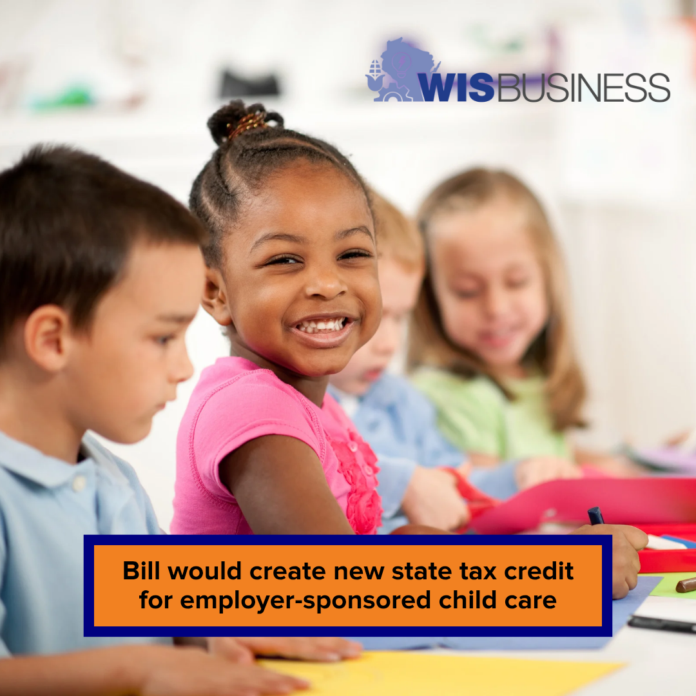Legislation being circulated by GOP lawmakers would create a new state tax credit for employer-provided child care, mirroring a federal tax credit.
Rep. Dave Armstrong of Rice Lake and Sen. Dan Feyen of Fond du Lac recently sent a cosponsorship memo to other lawmakers seeking support for the bill. They say it would be “essentially doubling” the benefit for employers in the state.
“This would provide a greater incentive for employers to invest in childcare for their employees,” they wrote.
The bill authors note employers often point to a lack of affordable child care care as “one of the primary obstacles” to hiring and retaining workers. Some businesses are now offering in-house child care to their employees or securing slots for their children at local facilities.
To support such programs, Section 45F of the Internal Revenue Code includes a nonrefundable tax credit equal to 25% of the cost of establishing or operating a child care facility for an employer’s workers, plus 10% of the costs of child care resource and referral services to these employees.
The total credit is limited to $150,000 per year, according to the memo. And the credit has a “sliding-scale clawback provision” for facilities that shut down within 10 years.
Under the legislation being circulated, anyone who’s eligible for that federal employer-provided child care credit would be able to claim a nonrefundable state income and franchise tax credit equal to the amount that recipient can claim for the federal credit. That’s according to an analysis by the Legislative Reference Bureau.
Similar to the clawback provision at the federal level, the state-level bill includes a provision that if a claimant has to repay a portion of the federal credit, that recipient must also repay an equal amount back to the state Department of Revenue, LRB notes.
“While 45F is currently not widely used, LRB 1033/3839 may increase its visibility and make it a more attractive option here in Wisconsin, benefiting employers and employees alike,” bill authors wrote in the memo.
The cosponsorship deadline is 5 p.m. today.
See the bill text.







